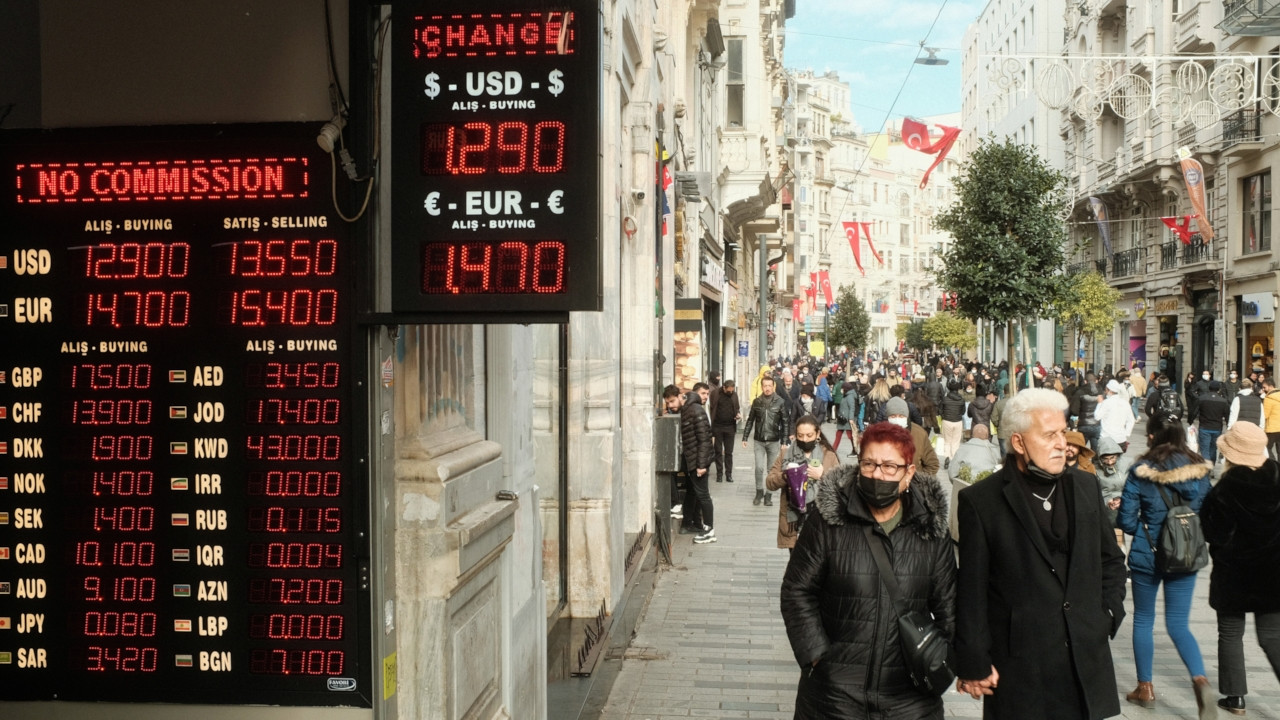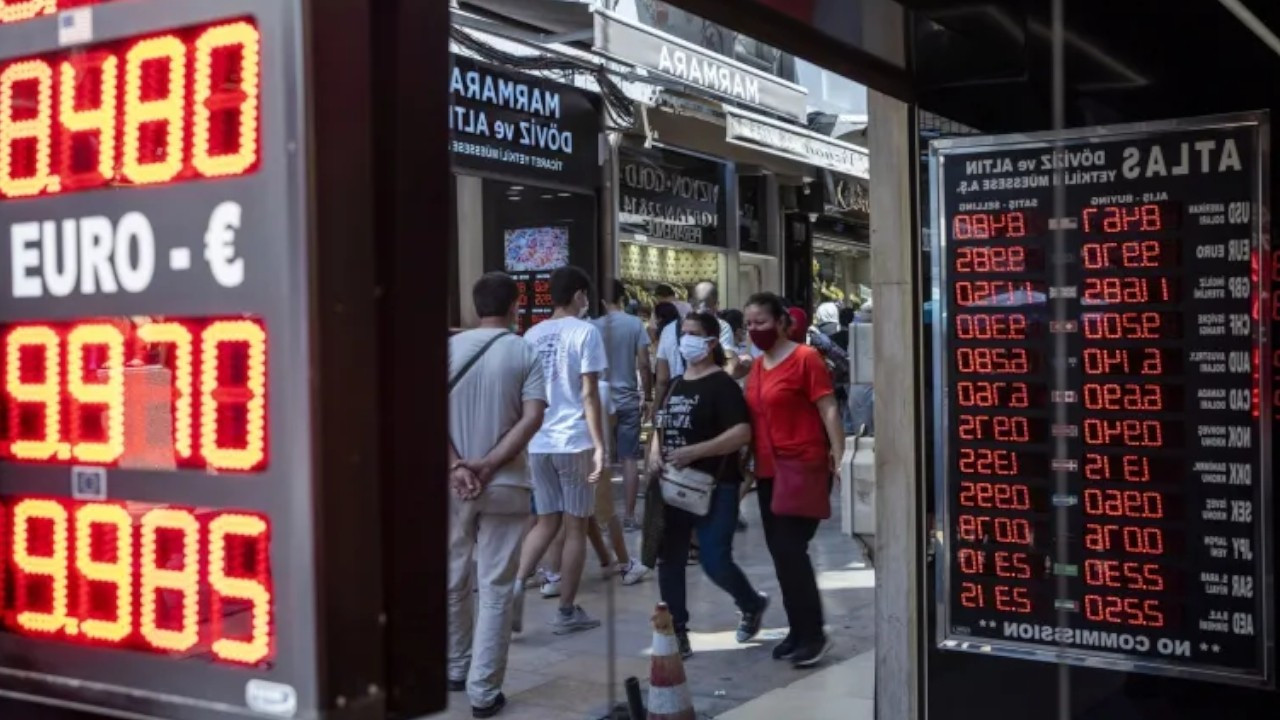Turkish lira weakens after Erdoğan's call on citizens to avoid private banks
The Turkish lira weakened on Jan. 27 after President Recep Tayyip Erdoğan called on citizens to avoid private banks for loans and the Central Bank raised its year-end inflation forecast.
Duvar English
Turkey's lira traded weaker against the dollar on Jan. 27 after the U.S. Federal Reserve signaled tighter policy and President Recep Tayyip Erdoğan described Turkish private banks as “wheel of exploitation” and called on citizens to work with public banks.
In an interview on broadcaster NTV on Jan. 27, Erdoğan criticized the Turkish private banks, saying they have been demanding a higher interest rate for consumer loans than the Central Bank's interest rates.
“We see that private banks are still in an effort to continue this wheel of exploitation. I call on my citizens. I tell them to go to public banks. Do not get into such a wheel of exploitation,” Erdoğan said.
Meanwhile, the Turkish Central Bank on Jan. 27 revised its year-end inflation forecast upwards for both 2022 and 2023 while keeping its medium-term target at 5%.
Annual inflation is projected to hit 23.2% in Turkey by the end of 2022, revised up from 11.8% in the previous report, Central Bank Governor Şahap Kavcıoğlu told a meeting held to release the bank’s first quarterly inflation report this year.
The annual inflation rate stood at 36.08% in December.
The lira was trading at 13.62 against the U.S. currency at 0554 GMT on Jan. 27, weakening from a close of 13.5690 on Jan. 26.
Meanwhile, the Federal Reserve's chairman signaled plans to steadily tighten policy and the dollar rose on the back of higher yields, lifting the U.S. dollar index to near five-week highs.

 Erdoğan convinced to hold steady on interest rates until summer, columnist saysEconomy
Erdoğan convinced to hold steady on interest rates until summer, columnist saysEconomy Turkish Central Bank holds policy rate unchanged at 14 percentEconomy
Turkish Central Bank holds policy rate unchanged at 14 percentEconomy AKP, MHP vote down proposal for parliamentary inquiry into Dec 20 lira reboundEconomy
AKP, MHP vote down proposal for parliamentary inquiry into Dec 20 lira reboundEconomy